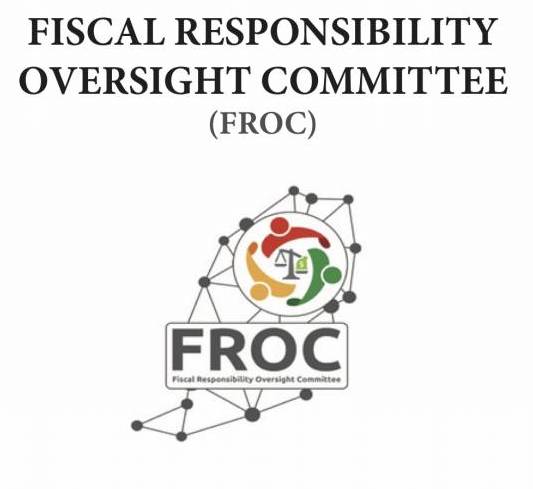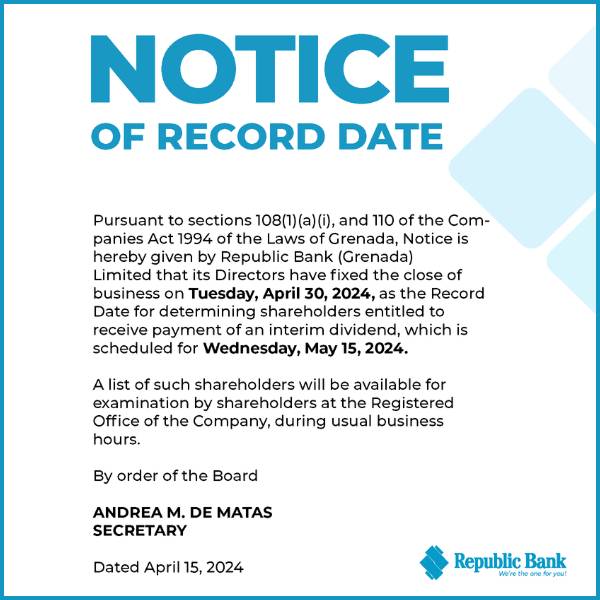by Kari Grenade, PhD Regional Economist and Macroeconomic Advisor
On 5 June 2021, finance ministers of Canada, France, Germany, Italy, Japan, United Kingdom and the United States (the group of seven nations – G7) and their counterparts in the European Union (EU), reached an agreement to reform the global tax system.
The salient element of the reform is that multinational companies (MNCs) would have to pay a minimum corporate tax rate on their profits of at least 15%. The proposal is for MNCs to pay the 15% rate in each country in which they operate as well as in the country in which they are headquartered.
The G7 ministers have provided the following reasons for the proposed reform. One, to address tax avoidance, which occurs when MNCs shift their profits to low or no tax jurisdictions to avoid paying taxes in their home countries where typically corporate tax rates are higher. Indeed, it is common practice globally for MNCs to set up subsidiaries or branches in countries that have no or low corporate income tax (CIT) rates and declare profits there and only pay the local CIT rate, even if they make all or the bulk of their sales in other countries. Two, to stop the race-to-the bottom in corporate taxation, which occurs when countries compete against each other to attract foreign investment by reducing CIT rates. And third, to collect more tax revenue from MNCs, especially large digital companies and tech giants.
Final agreement is expected to be reached at next month’s meeting of the finance ministers of the group of twenty nations – G20, which comprises the G7, EU and 12 others that include Brazil, China, and India. It is expected that broad consensus will be reached in July and the agreement could become a done deal this year if it gets past the divided US Congress.
It is still early days yet for a robust analysis of the possible implications for Caribbean countries, but not too early for some initial thoughts.
Based on past experiences, it is usually the case that developing countries such as those in the Caribbean tend to comply with global orders so as to avoid the consequences of noncompliance consequences that can exacerbate their economic vulnerabilities. Accordingly, there is likely to be a major reform of the corporate tax systems in the Caribbean, resulting in lower CIT rates towards, or to the global minimum rate, as well as legislative and other changes to plug extant loopholes.
Currently, CIT rates in the 13 independent members of Caricom average 26%; ranging from 40% in Guyana to 5.5% in Barbados. As such, moving towards, or to the global minimum rate of 15% will result in major losses of corporate tax revenue for Caribbean governments (perhaps with the exception of Barbados in this case given its current CIT rate). In the context of the imperative to spur economic recovery and transformation in a post-pandemic environment, a global minimum tax rate would be highly problematic for the Caribbean because of potentially grave fiscal fallout for already cash-strapped, debt-laden, low and no-growing Caribbean economies. However, while lower CIT rates will be a negative for governments, they will be a positive for local businesses (all other things being equal). Therefore, the net fiscal impact for a country as whole will have to be determined by among other factors, how local businesses utilise their profits that would have otherwise been taxed and how governments recalibrate fiscal policies.
For sure, the impact on foreign direct investment (FDI) would be negative for Caribbean countries, acutely so for countries such as The Bahamas and the Cayman Islands where CIT rates are 0% and Barbados given its low rate. Caribbean countries have used CIT rates as a legitimate instrument to attract FDI because they are not endowed with other potent instruments such as providing large grants for research and development for example as is done in rich countries. It is an unequivocal case that a global minimum tax rate of 15%, which Caribbean countries would have to move to/towards would be anti-competitive and disadvantageous for Caribbean countries in relation to FDI.
While the move by the G7 to address tax avoidance, close loopholes and get MNCs to pay their fair share of taxes is a positive one; it will have unintended consequences for developing countries such as those in the Caribbean; consequences that cannot, and should not be ignored. Messages from G7 and other developed countries to developing ones such as: upgrade the quality of your infrastructure (both physical and digital); upskill your labour force; improve the environment for doing business and investing; and find new sources to mobilise domestic revenues, will just not cut it at this stage, notwithstanding the necessity to do those things.
To address the unintended consequences of the G7’s policy for a global minimum tax rate, my advice to Caribbean governments is to collaborate with other developing countries and engage the G20 on a mitigation framework for developing countries that should include, among other strategic elements, explicit compensation for loss of revenue. This should not be difficult to agree on especially if tax revenues are expected to increase significantly in donor countries because of higher intake from their MNCs. As reported by the Guardian Newspaper on 5 June 2021, the International Institute for Public Policy Research, a leading UK-based thinktank estimated that a global minimum tax rate of 15% could raise an additional £7.9 billion for the UK, for example.
Caribbean countries will yet again face consequences of actions not of their own making. Indeed, a global minimum tax rate poses another major problem for the Caribbean to add to the unprecedented challenges that the region currently confronts, such as the pandemic and its aftereffects, climate change, high poverty and employment, and fragile economies.
Caricom will need relentless in its fight for socioeconomic justice and fairness for all countries. Might this time be different with female leadership in Caricom as well as at the Caricom Secretariate?

























Great article explained for the average person to understand.
The message is clear. We need to stop prioritizing foreign direct investment.
Maybe I am missing something here, but when I hear MINIMUM, it means the least you can charge, not the most, so for those countries with a higher rate, they can charge that higher rate if they wish, and for the likes of Barbados they will have to raise their rate to the MINIMUM, which would make a fairer playing field for other Caribbean countries. I have not studied this as yet, but I think this is Corporate taxes, not personal taxes.
The demand should be firmly ejected by Grenada. The ability to set your own taxes is part of being an independent nation and for Grenada possibly an opportunity to attract business and foreign investment to the island due to a comparatively small corporation tax (Southern Ireland being a prime example). Let the financially powerful nations mess with their economies but not Grenada’s
So the article states that the companies would have to pay the 15% in each country where they operate, if they are only paying 5% now that is a 10% increase in tax revenue from these corporations going to the individual countries NOT just the G7 ones. So the Caribbean should get more money. Stop giving concessions to all these foreigners and look after your own islands instead. You are all sort of Caricom why are you not working together on this policy and tax rates already?
Just so you understand who are these people who are responsible for making this decisions.
The G7 countries are amongst some of the richest and developed place on this planet.
So you can have a rough idea as to what they want from the rest of the world.
Nicely written Kari